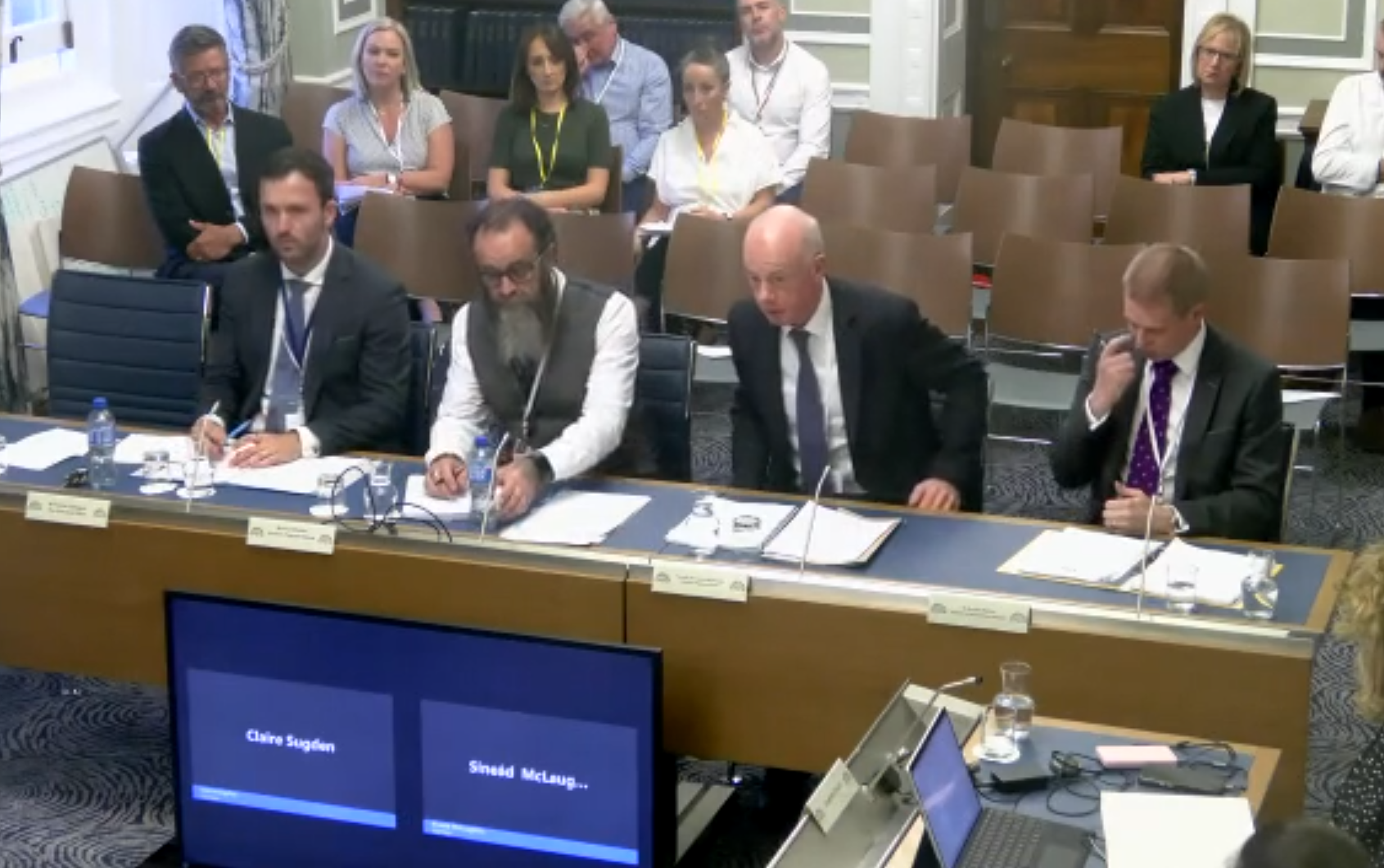Definition of Troubles victim compensation scheme ‘very restrictive’ – McAlinden
Mr Justice McAlinden, president of the Victims’ Payment Board said he regrets those excluded by the scheme.

Stormont has been challenged to devise a “more rounded” compensation scheme for those impacted by the Troubles.
Mr Justice McAlinden, president of the Victims’ Payment Board, described the definition of the current scheme as “very restrictive”.
He said he regrets that those who were bereaved in the Troubles are excluded from the Troubles Permanent Disablement Payment Scheme.
However he also said he “utterly rejects” claims that going through the application process was “dehumanising, cruel, re-traumatising and ritual humiliation”.
“That’s not the scheme that I am administering, it’s not features of the scheme that I accept or that I consider are appropriate comments in the context of this scheme,” he said.
Appearing before the Stormont Executive Office committee Mr Justice McAlinden said it is a victim-centric scheme which tries to recognise the harm and hurt caused through the Troubles and provide financial support for those suffering from permanent disablement.
The committee heard that so far £90 million has been paid out by the scheme, which has been open for applications since 2021, and is set to close to new applications in August 2026.
Mr McAlinden said they have tried to extend the scheme.
“They are a section of those directly affected by the Troubles that are still left outside the scope of a bespoke scheme,” he said.
“A person is entitled to payments under the scheme if they suffer an inquiry which was caused by a Troubles-related incident when they are present at the Troubles-related incident or in the immediate aftermath.
“That is a very restrictive definition of entitlement… we’ve tried to extend that as far back as possible.

“What we are trying to do is stretch the boundaries of this limited scheme to ensure that the clear deficiency and deficit, the absence of a scheme bespoke for the bereaved, does not have a hard edged damaging impact as it otherwise would.”
Mr Justice McAlinden also described the issues with the scheme as a “microcosm” of the problems faced by Northern Ireland society as a whole.
He invited Stormont politicians to come together and develop a “more rounded scheme”.
“The whole issue of victimhood is a divisive issue within our society, and it is so divisive that the local elected representatives were unable to agree a scheme that facilitated all views in terms of victimhood,” he said.
“So we had Westminster take up the baton and in essence impose a scheme which I think no one is very happy with.
“We have quite a limited and narrow definition of a Troubles-related incident, and we have quite a limited and narrow definition of victimhood and we have the exclusion of the bereaved.
“Those are issues that locally this Executive, this Assembly could deal with if they could agree. If they could bring their heads together, they could reconstruct this scheme.”
He went on to say he fully appreciates that paying money to someone who was injured as a result of involvement in an act of violence themselves “retraumatises the innocent victims”.
He said it is a “really thorny issue” and challenged MLAs on the committee to use good will and their life experience to try to reach agreement.
He added: “This scheme is a microcosm of the problem that is societal.
“This scheme is a microcosm of the inability of people to recognise what went on in the past, recognise that there was fault on both sides, apologise and open up for the hurt and harm that they caused, and that’s where I am very strongly of the view that this whole legacy process is so one-sided, because we have the state that has to open up, and we have the paramilitaries that are basically keeping shtum.
“That is unacceptable, if you want to move forward, everyone has to open up, everyone has to open the book, and everyone has to apologise sincerely for the harm and hurt that they caused.
“Now that’s where this scheme attempts to give definition to the issue of reconciliation, because this scheme, even by its shortcomings, highlights the societal issues that we have to address as a society.”





